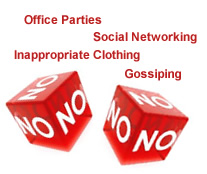1. Meditation increases our memory. A recent study
showed that meditating for eight weeks was linked to having a higher
density of gray matter, a part of the brain that helps with memory and
learning. With all we have to keep in mind during the typical workday,
who couldn’t use a little memory boost?
2. Meditation increases our attention span. Having
trouble paying concentrating? Try meditating. By practicing keeping your
focus on one thing at a time, such as your breath, you improve your
ability to pay attention when it really matters, such as during a boring
but important meeting.
3. Meditation improves our response to stress and emotion.
Studies show that meditation actually changes the way our brain
processes emotion, making us more resilient. And that’s not true just
during meditation — the effects stay with you long after you’re done.
The next time your boss yells at you, it’ll be like water off a duck’s
back … well, almost.
4. Meditation gives your brain a true rest. When you
take a break from work and go on social media, your brain is reading
and analyzing what you’re seeing. This means it never really gets to
rest, so when you get back to work you don’t feel refreshed. Meditation
allows your brain to rest up so you can perform your best.
5. Meditation improves your cognitive processing.
Perhaps because we’re better able to concentrate on what we’re doing and
ignore distractions when we’re accustomed to meditating, people who
meditate perform better on cognitive tasks. This means you’ll write
better reports, come up with better responses in meetings, and do better
on just about any project that comes your way.
To continue reading, click
here.

















































